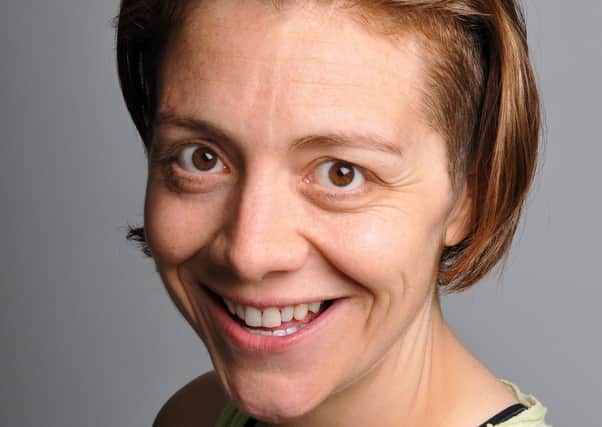Scottish comedy’s plight is no laughing matter – Brian Ferguson


Can you remember the first time you saw yourself reflected back from a television screen or at the cinema?
It’s quite vivid in my memory as an awkward, hapless schoolboy, watching Gregory’s Girl at home in the mid-1980s. I was agog at not how achingly funny it was, from almost the first frame to the last, but also how true to life it felt to the harsh realities of teenage years when almost everything feels like a total mystery.
Advertisement
Hide AdAdvertisement
Hide AdI’ve been thinking a lot about Gregory’s Girl recently, partly because it is 40 years old next year. It is undoubtedly a touchstone for my generation, but is still seen as one of the greatest Scottish films of all-time. Director Bill Forsyth is revered as one of the nation’s leading filmmakers, not just for Gregory’s Girl, which was famously honoured in the opening ceremony for the London Olympics in 2012, but for his two other best-known movies, Local Hero and Comfort and Joy. All three comfortably fit into the category of comedy.
Yet 40 years on, the current crop of Scottish comics have had to go into battle to try to secure official recognition for their art form for the first time and a share of the £107m lifeline funding to secure the future of arts and culture north of the border. I’ve come across some bizarre scenarios, but the sight of Scottish stand-ups pleading for fair treatment from the government of a country of Billy Connolly, Frankie Boyle, Still Game, Chewin’ the Fat, Elaine C Smith and Karen Dunbar is right up there.
At the heart of the campaign are concerns that live comedy is at risk of being overlooked in favour of theatre, live music, galleries and museums. Fears of being overlooked have not been eased by some of the early decisions taken on funding rescue packages. A performing arts relief fund, initially said to be aimed at helping venues avoid the risk of insolvency, is being run by Creative Scotland, which has so far only used it to support venues it already funds. The £5.5m currently left over from a £12.5m funding pot, described as a vital lifeline to help performing arts venues weather the storm, is only open to charities or venues owned or run by councils.
The Scottish Government has ringfenced other sums for the events sector (£10 million), live music venues (£2.2 million), £4.5 million for museums and galleries, and £3.8 million for the National Trust for Scotland.
Now, none of the above funding has been secured without a fight, nor the ringing of alarm bells, nor indeed proposals for significant job cuts which have prompted widespread concern and anger from trade unions and politicians.
The music industry is certainly far from satisfied at the £2.2 million that has been allocated to grassroots venues, especially with little prospect of being able to allow venues to resume operating normally in the next year. Yet comedy clubs, performers and promoters have yet to see a penny of ringfenced support, five months after being as equally affected by the lockdown as every other artform.
Creative Scotland points to its support for concert halls and venues where comedy is staged, including Eden Court in Inverness, The Tron in Glasgow, An Lanntair in Stornoway, His Majesty’s in Aberdeen and the Beacon Arts Centre in Greenock. But it also insists its support for comedy is delivered through other artforms such as theatre, music, film and physical performance.
Six weeks on from an open letter warning that Scotland’s grassroots comedy scene in Scotland is at risk of “extinction”, it is still waiting on a lifeline. Unless it arrives soon there may be little laughter left for those who had been making a living from it until the spring.
A message from the Editor:
Advertisement
Hide AdAdvertisement
Hide AdThank you for reading this article on our website. While I have your attention, I also have an important request to make of you.
With the coronavirus lockdown having a major impact on many of our advertisers - and consequently the revenue we receive - we are more reliant than ever on you taking out a digital subscription.
Subscribe to scotsman.com and enjoy unlimited access to Scottish news and information online and on our app. With a digital subscription, you can read more than 5 articles, see fewer ads, enjoy faster load times, and get access to exclusive newsletters and content. Visit www.scotsman.com/subscriptions now to sign up.
Our journalism costs money and we rely on advertising, print and digital revenues to help to support them. By supporting us, we are able to support you in providing trusted, fact-checked content for this website.
Joy Yates
Editorial Director
Comments
Want to join the conversation? Please or to comment on this article.